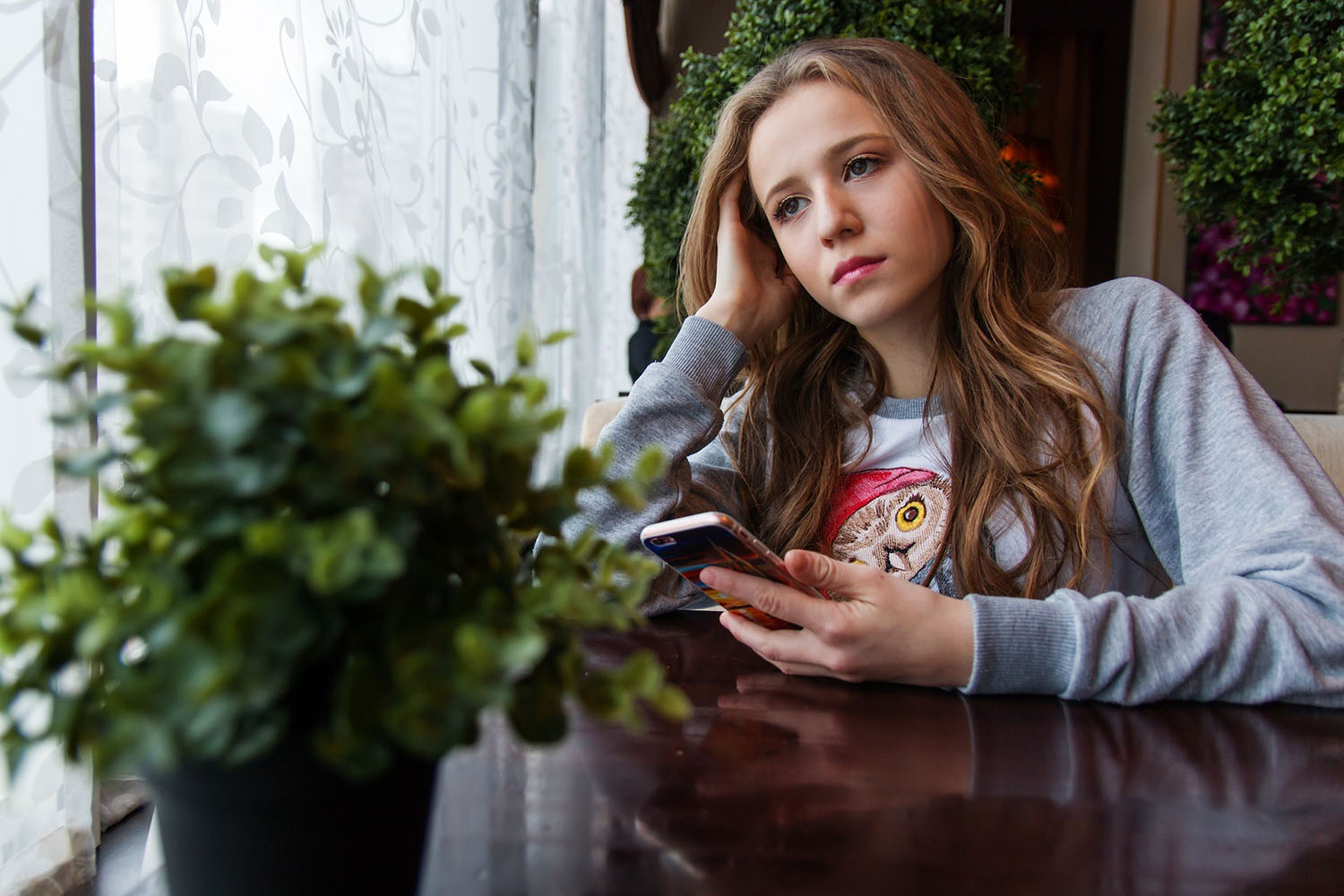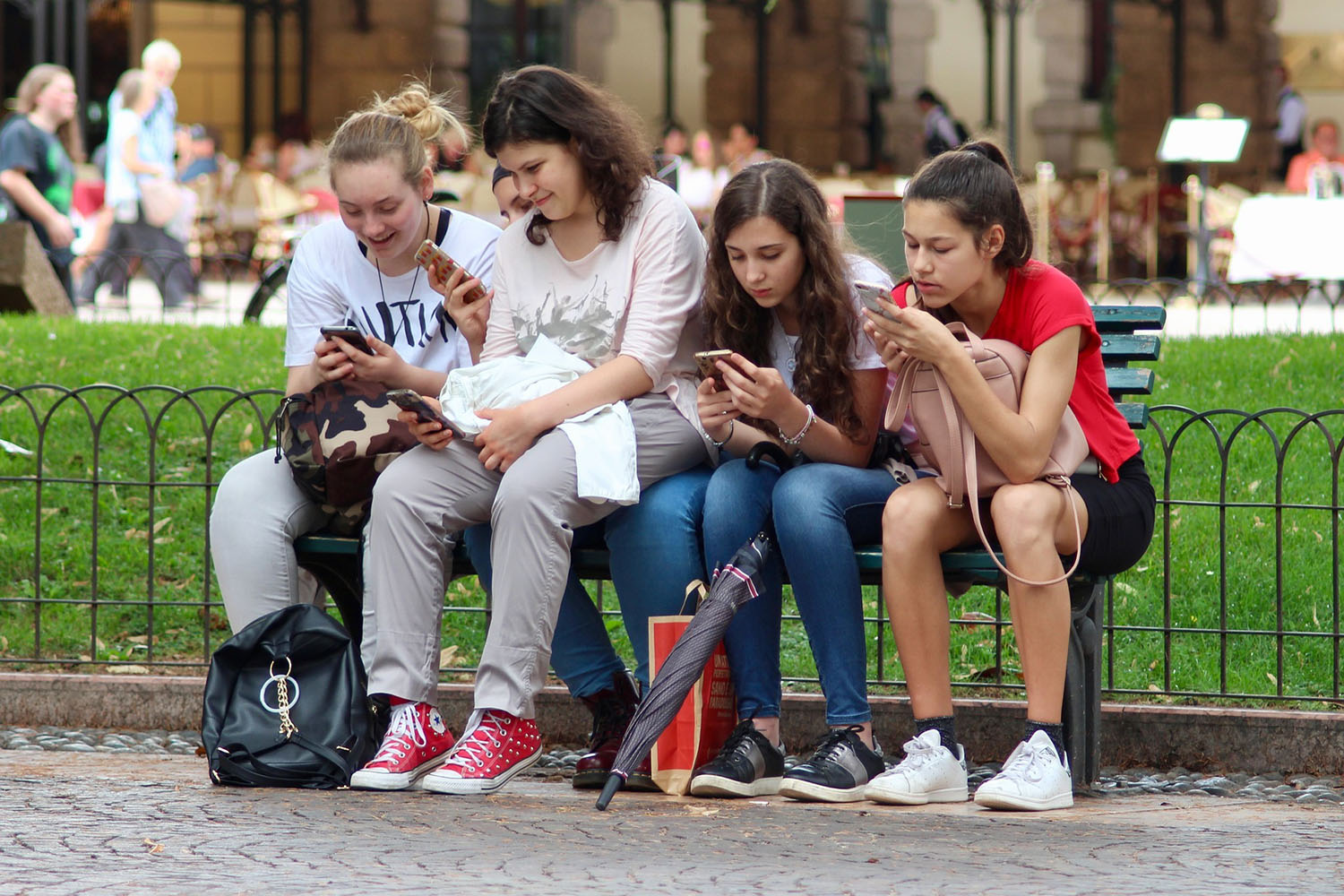9 Ways Parents Can Combat the Negative Impact of Instagram on Teens
October 11, 2021 | UGCAccording to a study on the mental health and wellbeing of young people, as children move into adolescence, their self-esteem tends to decline on average. In focus groups, young people cited increased concerns about being judged and not belonging during the transition to secondary school as being particularly hard on their self-esteem. And according to Forbes, findings from a new study assert that girls have much lower self-esteem in their teenage years.
There’s no doubt that social media can be a helpful tool for keeping in touch, especially for teens navigating the communication challenges of life amid a pandemic. And while it can keep teenagers connected to their peers, platforms like Instagram may also create a toxic landscape for young adults already struggling to navigate self-esteem issues.
Today, we’ll look at just how detrimental Instagram can be to teens, why it can be a toxic platform, and what parents can do to protect their teenager’s self-esteem.

How Damaging is Instagram to Teenagers
Teens ages 13 to 18 spend an average of nine hours on social media per day, with 76% of American teenagers using Instagram. And no, you didn’t just mis-read that! Teens really do spend an astounding average of nine hours (the majority of their day) immersed in a virtual world! As for parents, the San Diego County District Attorney reports that only 52% moderately supervise their childrens’ Internet use and 20% do not monitor use at all.
Unfortunately, this combination of excessive, unsupervised screen time can exacerbate underlying self-esteem issues and leave room for damaging experiences that parents may be unaware of. Just how damaging?
Over the past three years, Facebook has been conducting studies on the impact that Instagram, its popular photo-sharing app, has on the nearly 22 million teens logging on in the U.S. each day. The company’s researchers have repeatedly found that Instagram is harmful for a significant percentage of them, particularly teen girls.
In 2019, one of the Instagram slides summed up research on teenage girls who experience self-esteem issues by stating that “We make body image issues worse for one in three teen girls.”
Another presentation indicated that 6% of American and 13% of British teenage users who reported suicidal thoughts linked these thoughts to Instagram. Yet another slide stated that “Teens blame Instagram for increases in the rate of anxiety and depression.”
And in a March 2020 slide presentation posted to Facebook’s internal message board, researchers stated that “32% percent of teen girls said that when they felt bad about their bodies, Instagram made them feel worse. Comparisons on Instagram can change how young women view and describe themselves.”

Why has Instagram Become a Toxic Platform for Teens
According to Instagram head Adam Mosseri, there are specific Instagram features that may be posing the biggest threat for harm to young adults, including filters for selfies that alter the image of users, making them look, well, too perfect. Another aspect of Instagram that emerged as concerning is the continual pressure on users to share only their “best life.” In addition to filters and snapshots of perfect moments, the algorithm also causes trouble by curating content that can be toxic.
For example, if a teen girl searches Instagram for workouts and likes a few she finds, the app’s algorithm will likely populate her Explore page with posts about how to lose weight and photos of the “ideal” body type.
“What girls often see on social media are girls with slimmer waists, bigger butts and hips, and it can lead them to have body image issues,” said Shevon Jones, a licensed clinical social worker based in Atlanta, GA.
Social comparison, the act of analyzing one’s own value based on comparison to the wealth, success, and attractiveness of others, is especially problematic on Instagram due to the app’s emphasis on lifestyle and the body.
A 2020 statement about Facebook’s three-year dive into teenage girl body-image issues concluded that social comparison is “worse on Instagram.” And while comparison is a natural part of growing into adulthood, consistently negative social comparisons can be harmful to both a teen’s self-esteem and social-emotional health.
One study found that Instagram makes body image issues worse for 1 in 3 teen girls. And although more prevalent among teen girls, 14% of teen boys in the U.S. said Instagram made them feel worse about themselves. [Wall Street Journal].
The collective Facebook documents also suggest that Facebook has failed to make sizable efforts to address these social comparison issues. As such, it falls on families to learn how they can protect their teens from the potential damages that Instagram can cause.

How Can Parents Protect Their Teens from Instagram’s Dark Side
Although it could be tempting to ban teenagers from using Instagram altogether, there are several steps that you as a parent can take to improve your teen’s chances at developing a healthy self-esteem that are more realistic.
1. Educate Yourself. Understanding how apps like Instagram work will open your eyes to how your teen can be impacted by the content they consume online, allowing you to discuss who they are following and how it makes them feel. That may mean paying more attention to your own Instagram feed and what’s trending.
2. Set Realistic Parameters. Perfect and filtered images on Instagram’s feeds are more potent the more time your teen spends online, so set parameters regarding how much time they can spend on the app every day. These parameters should also include when it’s appropriate to be on the app – not before school or not until homework is done – for example. And follow your own rules! If you decide that your teen can’t post selfies, practice what you preach and skip the selfies on your own account.
3. Encourage Positive Influence. The abundance of polished Instagram posts out there can inadvertently reinforce detrimental and superficial values for teens, especially for girls. Talk to your teen about the drawbacks of the app and what they see as issues on their feeds. Listen, then encourage your teen to help change the culture of social media by sharing content that is authentic, uplifting, and age-appropriate. Encourage them to share posts that are kind and only use filters that are funny (as opposed to beautifying).
4. Emphasize No Loss of Privileges. The primary reason that teens are hesitant to tell parents about upsetting things they are exposed to or experience on Instagram is because they are afraid parents will ban it. Mitigate this lack of communication by reminding your teen that you won’t judge them or take away their Instagram privileges, but you will take an interest in their digital world. By doing so, you’ll keep the lines of communication open, making it easier to supervise their online social life.
“Ask your child who they’re following, how they feel when they’re online, and to walk you through how they use it,” says Michael Robb, senior director of research at Common Sense Media. “Kids are happier to do this than you might expect, because they don’t often get asked that question by an adult in a nonjudgmental way.”
5. Identify Triggers. If your teenager expresses being uncomfortable about content on their Instagram feed or feeling bad about himself or herself after using the app, offer them some strategies for managing these feelings. Work with your teen to determine what images trigger negative feelings and remind them that they can block or even unfollow users that create this content. Help them find activities outside of the online world that will build their self-esteem and remember that your own encouragement goes a long way!
6. Pay Attention. Pay close attention to any offline risks that your teen is exhibiting. This includes jealousy or depression, which often overlap problematic social media use. Changes in eating habits are another sign that should not be overlooked.
Angela Guarda, director for the eating-disorders program at Johns Hopkins Hospital and an associate professor of psychiatry in the Johns Hopkins School of Medicine, said it is not uncommon for her patients to say they learned tips for how to restrict food intake or purge on social media.
“It’s the ones who are most vulnerable or are already developing a problem—the use of Instagram and other social media can escalate it,” Guarda said, adding that by her estimation, Instagram and other social-media apps play a role in the disorders of around half of her patients.
7. Stay Alert. Few things are more damaging to a teen’s self-esteem than bullying, both in person and on social media. Your teen may be reluctant to talk to you about cyberbullying, so look for the signs. If your teen is unwilling to hand over their device, anxious or uneasy when receiving an Instagram alert, or unusually withdrawn, moody, or on edge, these could be signs of cyberbullying.
National Stop Bullying Day is on October 13 and there’s no better time to review the other signs of cyberbullying and remind your teenager that they can come to you with anything that is bothering them.
8. Push Back. As a parent, be intentional about pushing back against the detrimental messaging on Instagram. When it surfaces, teach your teen how to view it more critically. This includes helping teenagers understand the difference between content from a friend versus content posted by an influencer that gets kick-backs from a company they represent.
9. Be Proactive. If you have a pre-teen who isn’t on social media yet, decide what is an appropriate age for your child to start using Instagram. Despite what your child’s peers may be doing, Instagram actually requires everyone to be at least 13 years old before they can create an account, but this may still be too young for some teens. If your child comes to you when they are having trouble in school, whether it’s with homework or a peer, this is a good sign that they will be honest with you about online experiences and are ready for a social media account.
Conclusion
While it can be tempting to assume that Instagram has one side, and it’s dark and too dangerous for your teen, it does have its merits. It can sometimes be a tool for teenagers to find online support for mental health problems.
As a parent, you can instill a strong value system, set realistic parameters, and encourage the communication necessary for helping your teen decipher between doctored realities portrayed on Instagram and what is genuine content. By helping your teen develop a healthy self-esteem outside of social media, they’ll be positioned to be a source of positive content on a platform that needs it now more than ever.